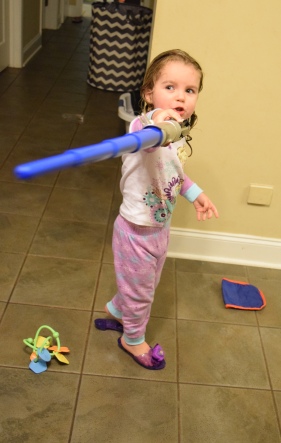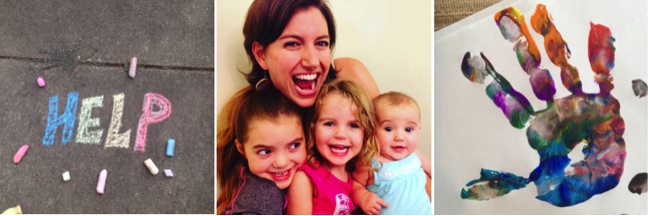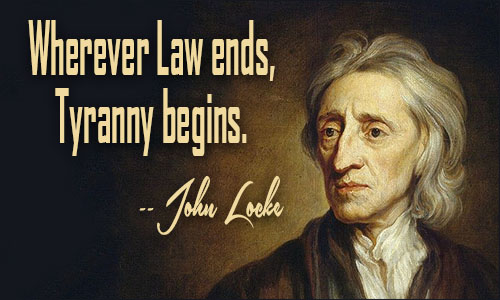Once upon a time, not so long ago, I taught 7th grade social studies. Maybe I’m a nerd, or maybe I’m just really enthusiastic about the advent of representative government, but my favorite unit to teach was on the Enlightenment. A lightning-quick recap for those of you who somehow managed not to pay attention during this riveting part of your historical education (bear with me, I promise I’m going somewhere parenting-related with this):
Up until the 17th century, pretty much all of Europe was ruled by absolute monarchs who wielded unlimited power. The monarchs didn’t always use this power for good; King Charles I of England was a particular jerkface, so in 1642 a fed-up Parliament went to war with him. Parliament won and the king was publicly beheaded. A few other unsatisfactory rulers followed, and eventually it was decided that the best solution was a constitutional monarchy.
One thinker of the time, Thomas Hobbes, saw the king’s execution as proof that humans were, by nature, violent brutes. John Locke, who wrote a generation after Hobbes, watched these events unfold and came to a different conclusion: people were born equal, with inherent rights that should be protected by the government. Both men, along with other philosophers of the era, were searching for a rational truth that applied to all men (and women, I guess, but who cares about them?) in order to determine what form of government was the best fit for human nature. It was an exciting time. Science flourished. Revolutions erupted. The guillotine was invented as a weapon of absolute equality and relative painlessness, at least in comparison to the instruments of torture used so indiscriminately by former rulers. Huzzah!*
Okay, I have now adequately conveyed my enthusiasm for teaching the Enlightenment. I’m not in the classroom anymore, which is a bummer, because while I love my own kids, I really did love teaching too. But with each passing day, I’m realizing that parenting is, in fact, much like the Enlightenment. Let’s look at a few key similarities.
- It’s always reason vs. emotion. Let’s say that Sir Isaac Newton himself is trying to explain to my children that there are scientific laws that apply to everyone and everything on planet earth. You know, like gravity. So if you stand on top of a rickety stool to look for the cookies mommy hid from you on the top shelf of the pantry, and you lose your balance, well, you’re going to come crashing to the ground. Their response would still be, “But I waaaaant to, Sir Isaac!” You can only reason with people who are rational. Didn’t you know that, Sir Isaac?
- The little people are always trying to make it a democracy. I’m trying my hardest to be as unmovable as that jerkface King Charles I, but no one in my house is taking my God-given authority seriously. They keep thinking they can chime in with suggestions. No, I’m not making you macaroni and cheese. You can have quiche like the rest of us. No, you can’t just eat the crust and then ask for a dessert. EAT YOUR DAMN QUICHE, PEASANT!
- It’s a study in human nature. What I loved most about teaching the Enlightenment was the discussion it generated with my students about human nature. Are humans really all greedy and self-interested? If we weren’t given rules to follow, what would we do? What characteristics and behaviors are learned, and which are innate? Observe my children for an hour or two and the answers would be as follows: Yes. We would make the biggest mess we possibly could and refuse to clean it up, or do gymnastics on the bed, or eat candy until we threw up. We learn all the good characteristics, like saying please and thank you, from our mothers, and everything else is inherited directly from our fathers.

The revolution begins at the point of a lightsaber.
- The ideas of the past seem hilarious. Remember when people thought that the sun moved around the earth? That monarchs, even terrible ones, were hand-picked for the job by God? Ludicrous, am I right? Parenting is no different. Before I had kids, I thought all sorts of things. Things about staying in shape and going out on date nights and coming up with an organizational system that works for our family. Things about what I’m going to feed them and how I’m going to discipline them. If only I knew then what I know now.
- Everyone’s all like, I have rights! Well, not exactly. I’ve made it a point not to teach my oldest child this phrase quite yet- in fact, I’ll just let her learn it from her 7th grade social studies teacher. No, what she says instead, in the snottiest voice possible, is, “Well I can if I want to.” My two-year-old just says, “But I waaaaaant to, mama!” My ten-month-old just says, “Waaaaaaaaaah!” And in the meantime there’s me, going, “I have the right to tell you what to do! I AM YOUR MOTHER! DO AS I SAY!”
You know what? The more I think about it, the more I worry that I really am King Charles I and that a tiny army of Roundheads is plotting to overthrow me. Maybe I should concede to make that macaroni and cheese after all…
*I would totally cite a source for this information, but I crammed it all into my brain during the three years I taught social studies, and now I am really not sure. I know that’s unprofessional, though, so let’s just say Source: Textbooks and Internet.

